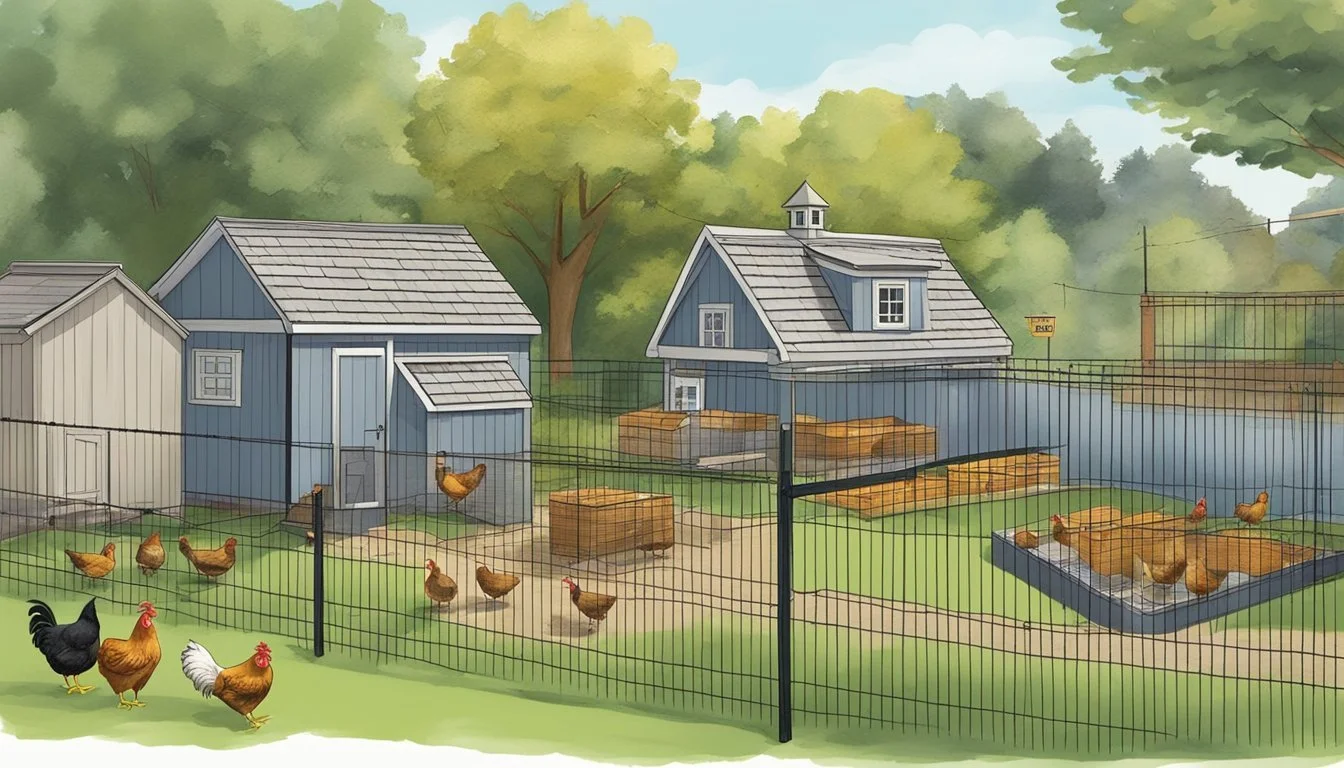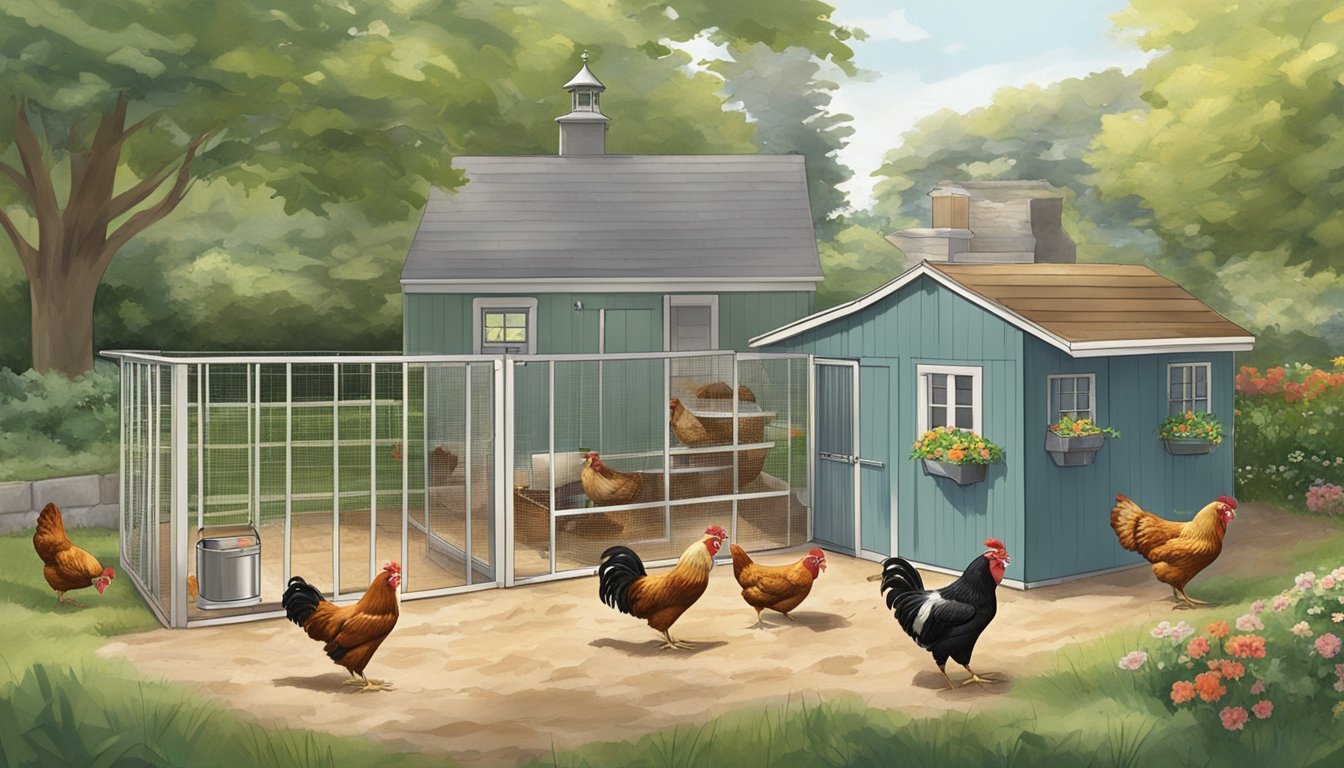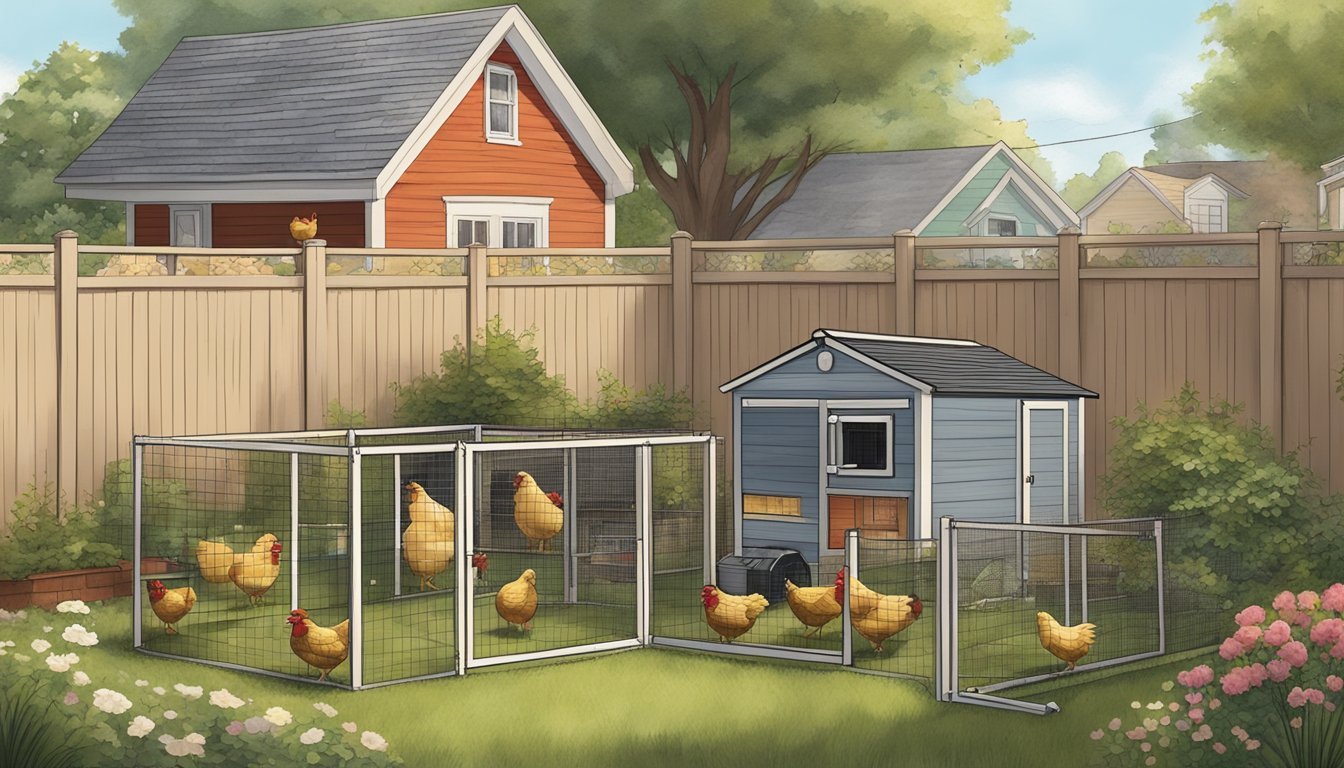Keeping Backyard Chickens in Boston, MA
Essential Urban Farming Guidance
Urban agriculture in Boston has gained momentum with residents seeking to embrace the simplicity and sustainability of growing their own food. Among the various facets of this movement, raising backyard chickens is one aspect that offers Bostonians an opportunity to connect with their food source while also enjoying the benefits of fresh eggs. As a city that values local initiatives and self-sufficiency, Boston accommodates the keeping of chickens within its urban setting, allowing residents to partake in this rewarding practice.
It is essential for Boston residents to understand that while the city supports the idea of backyard chickens, several regulations are in place to ensure public health and neighborhood harmony. The city mandates that all chicken coops and runs be located at least 25 feet away from neighboring homes to prevent any nuisance or health issues. Furthermore, permits are required for keeping chickens, which involves an inspection to guarantee that all guidelines are strictly followed.
The state of Massachusetts generally maintains a positive stance towards backyard chickens, with state laws and local bylaws working in tandem to create a cohesive framework for urban chicken keeping. Prospective poultry enthusiasts in Boston are advised to acquaint themselves with the precise rules and conditions, such as limits on the number of chickens and the necessity for secure housing, to ensure compliance with all regulations and contribute to the thriving culture of urban agriculture in the heart of Massachusetts.
Legal Framework for Raising Chickens
Raising backyard chickens in Boston, MA, is subject to specific local ordinances and state regulations. Residents must comply with city guidelines, zoning laws, and permit requirements.
Boston City Regulations
In the City of Boston, residents are permitted to keep chickens; however, this is governed under certain conditions to maintain public health and neighborhood harmony. Chicken coops and runs must maintain a minimum distance of 25 feet from neighboring dwellings. A permit from the Division of Health Inspections, which is a part of the Inspectional Services Department, is mandatory for keeping live fowl.
Understanding Article 89
Article 89 of the Boston Zoning Code addresses urban agriculture, including the keeping of chickens, yet it should be interpreted in alignment with other relevant ordinances. It outlines the terms for urban farming which involves detailed land use regulations that aim to balance urban agricultural practices with the Boston community's needs and maintaining sanitary and safe conditions.
Local Government and Zoning Ordinance
Local zoning laws should be checked for further restrictions on poultry keeping as they can vary by district. The Trial Court Law Libraries and the Massachusetts Court System can be sources to find comprehensive legal information regarding animal keeping. The existence of permitting requirements varies by location; hence, residents are advised to consult with their local government. Zoning ordinances may have additional stipulations on the number of chickens allowed and the size or placement of coops on a property.
Getting Started
Embarking on the journey of keeping backyard chickens in Boston requires careful breed selection and proper setup of a coop and run. Maintaining compliance with local regulations ensures a smooth start to urban agriculture with feathered friends.
Choosing the Right Breed
When selecting chickens for a Boston backyard, one should consider climate tolerance, temperament, and egg production. Hardy breeds like the Plymouth Rock or the Rhode Island Red thrive in New England's colder climate. It is important to note that roosters are often not allowed in urban settings due to noise ordinances; hence, focusing on hens is advisable for egg production without disturbance.
Setting Up Your Coop and Run
An appropriate coop provides shelter and protection for chickens. Boston regulations require coops to be at least 25 feet from neighboring homes. The coop should be predator-proof, with sturdy construction to prevent entry by raccoons, foxes, or other local predators. The run, an enclosed outdoor space for chickens to forage, must also be secure. Using hardware cloth instead of chicken wire can provide enhanced protection. Proper cleaning and maintenance of the coop are vital to prevent odors and keep chickens healthy.
Permits and Policies
Before one starts raising chickens in Boston, it’s essential to understand the permit requirements and property line regulations to ensure compliance with local laws.
Acquiring the Necessary Permits
In Boston, any resident interested in keeping backyard chickens must first obtain a permit. The permit process is overseen by the Division of Health Inspections within the Inspectional Services Department. To initiate the process, an application must be submitted for review. During this check, the applicant may be required to provide specific details about their coop plans and how they intend to maintain a clean and sanitary environment for the chickens.
The city of Boston stipulates that no person shall keep any live fowl or other farm animals without securing the appropriate permissions first. Compliance with this law helps maintain the quality of life in residential areas and avoids unnecessary disputes with neighbors or city officials.
Property Line Rules
When planning to raise chickens, property line rules are crucial. Chickens Allowed per household is capped at six, and the Property Lines must be duly considered when constructing coops. The law emphasizes that all chicken coops:
Must be predator-proof
Provide at least 2 square feet of space per chicken
Coops and runs should be placed appropriately to minimize any inconvenience to neighbors, and their placement is typically subject to setback regulations as per the Boston chicken permit guidelines. The services of the local zoning department can be sought for feedback on the precise requirements and assistance to ensure that the chosen site for the chicken coop respects the neighboring properties’ boundaries.
Health and Maintenance
Maintaining the health of backyard chickens in Boston, MA, involves proactive measures against diseases and pests, regular cleanliness and waste management, and ensuring access to veterinary care. These practices are critical for the well-being of the chickens and the cleanliness of the environment they live in.
Preventing Diseases and Pests
Chickens are susceptible to a variety of diseases and pests. To prevent the spread of disease and pest infestations, owners should:
Keep the coop and surrounding area clean and dry.
Practice good biosecurity by limiting visitors to the chicken area and using footbaths.
Regular monitoring for symptoms of disease and the presence of pests like mites or lice is essential. Feeding chickens a balanced diet and ensuring they have a clean, dry space to live can greatly reduce the risk of health problems.
Cleanliness and Waste Management
The cleanliness of a chicken coop is critical for the health of backyard chickens. Owners should:
Daily: Remove droppings and leftover feed.
Weekly: Change bedding and scrub feeders and waterers.
Monthly: Conduct a thorough cleaning of the coop.
Composting chicken waste effectively can serve as a resource for gardening while keeping the coop area clean.
Veterinary Care for Backyard Chickens
Backyard chickens require regular veterinary care to maintain their health. Vital practices include:
Scheduling annual check-ups.
Having a plan for emergency care.
Chickens showing signs of illness should be isolated and taken to a vet specializing in poultry. Preventative healthcare practices, such as vaccinations and parasite control, are as important as treating diseases.
Community and Legal Considerations
Keeping backyard chickens in Boston, MA requires awareness of community dynamics and adherence to specific legal frameworks. Neighbors' feedback and local government stipulations play a significant role in maintaining harmony and compliance.
Dealing with Neighbors and Community
Maintaining a good relationship with neighbors is crucial when keeping backyard chickens. Residents should share their intentions with the surrounding community to gauge feedback and manage any concerns proactively. Restrictions under local laws stipulate that chicken coops and runs in Boston need to be at least 25 feet away from neighboring homes, ensuring a respectful distance to mitigate potential nuisances like noise and odor.
The town bylaws in surrounding areas such as Somerville and Cambridge, as well as neighboring states like New York (NY), Connecticut (CT), Rhode Island (RI), and New Hampshire (NH), may have variations in regulations, highlighting the importance of consulting local government for the most accurate and last updated information.
Slaughtering Regulations
While the sale and slaughter of poultry on a residential premises are subject to local ordinances, clear regulations are set forth regarding slaughtering within city limits. These activities are often tightly controlled to ensure public health and safety. Residents in Boston must comply with the specific ordinances that regulate not only the keeping but also the potential slaughter of chickens, the details of which can be found through the Division of Health Inspections, Inspectional Services Department.
It is imperative that residents understand and adhere to these regulations to avoid legal repercussions and maintain respectful community relationships.
Urban Agriculture Resources
In Boston, MA, residents have access to various resources that encourage and support urban agriculture, particularly the practice of keeping backyard chickens.
Support and Education
Organizations in Boston provide educational resources for those interested in urban agriculture. These organizations offer information that helps ensure the welfare of backyard chickens and compliance with local poultry regulations. Residents can access online blogs and articles that offer tips and guidelines on how to properly maintain their backyard flocks and provide suitable living conditions. Additionally, local law libraries can be a source of information on Massachusetts laws and city bylaws concerning the keeping of farm animals, including chickens, as well as regulations regarding other aspects of urban agriculture, such as beekeeping.
Green City Growers and YBC
Green City Growers is an urban farming company based in Boston that has expanded to include services for setting up and maintaining chicken coops in residential areas as of 2015. They partnered with Yardbirds Backyard Chickens (YBC), a one-woman operation from Somerville, to better support city dwellers in their chicken-keeping endeavors. Together, they offer hands-on assistance and educational workshops for people looking to integrate chickens into their urban gardening practices.
Services Provided By Green City Growers and YBC:
Installation of chicken coops
Maintenance services for poultry keeping
Educational programs for urban residents
With these local resources, Boston residents can confidently partake in urban agriculture initiatives, enriching their community food system and enhancing their knowledge of sustainable living.







